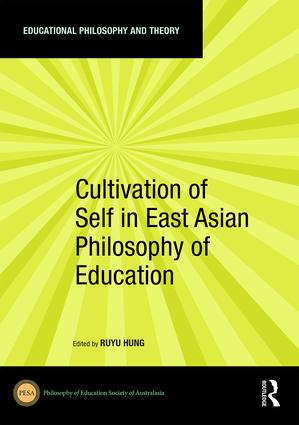About the Editor
Ruyu Hung is Distinguished Professor of Philosophy of Education at the National Chiayi University, Taiwan. She has been awarded a Research Fellowships of Japan-Taiwan Exchange Association and a Fulbright Senior Researcher Scholarship. Her research interests include philosophy of education, ecological philosophy, phenomenology, deconstruction and Daoism. In recent years, she has extended her research into comparative and intercultural philosophies of education. She is the author of Education between speech and writing: Crossing the boundaries of Dao and deconstruction (2017); and she is the Regional Editor of the Educational Philosophy and Theory journal.
Description
This book provides exciting and significant inquiries into the cultivation of self in East Asian philosophy of education.
The contributors to this volume are from different countries or areas in the world, but all share the same interest in exploring what it means to be human and how to cultivate the self. In this book, self-cultivation in classical Chinese philosophies—including Confucianism, neo-Confucianism and Daoism—are scrutinised and elaborated upon, in order to reveal the significance of ancient wisdom for today’s educational issues, and to show the meaningful connections between Eastern and Western educational thoughts. By addressing many issues of contemporary importance including environmental education, equity and justice, critical rationalism, groundlessness of language, and power and governance, this book offers fresh views of self-cultivation illuminated not merely by East Asian philosophy of education but also by the Western insights.
For those who are interested in comparative philosophies, intercultural education, and cultural study, this book is both thought-provoking and inspirational. The chapters in this book were originally published in the Educational Philosophy and Theory journal.
Table of Contents
Introduction: Cultivation of self in East Asian philosophy of education
Ruyu Hung
1. Confucianism and critical rationalism: Friends or foes?
Chi-Ming Lam
2. Is filial piety a virtue? A reading of the Xiao Jing (Classic of Filial Piety) from the perspective of ideology critique
Hektor K. T. Yan
3. ‘Keep off the lawn; grass has a life too!’: Re-invoking a Daoist ecological sensibility for moral education in China’s primary schools
Weili Zhao and Caiping Sun
4. The illusion of teaching and learning: Zhuangzi, Wittgenstein, and the groundlessness of language
Michael Dufresne
5. Donghak (Eastern Learning), Self-cultivation, and Social Transformation: Towards diverse curriculum discourses on equity and justice
Seungho Moon
6. Acting without regarding: Daoist self-cultivation as education for non-dichotomous thinking
Joseph Emmanuel D. Sta. Maria
7. The purpose of the MBA degree: The opportunity for a Confucian MBA to overcome neoliberalism
Robert Keith Shaw
8. Agency and social capital in Chinese international doctoral students’ conversion to Christianity
Qun Ding and Nesta Devine
9. Continue the dialogue – symposium of cultivation of self in East Asian philosophy of education
Ruyu Hung
10. Confucius’s view of learning
Yuanbiao Lin
11. Self-cultivation and the legitimation of power: Governing China through education
Bin Wu and Nesta Devine
12. Integrative ethical education: Narvaez’s project and Xunzi’s insight
Yen-Yi Lee
13. Confucius’ Junzi: The conceptions of self in Confucian
Jinhua Song and Xiaomin Jiao
